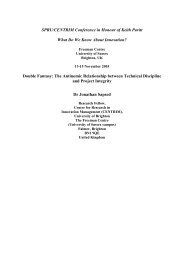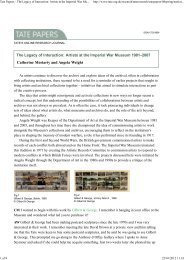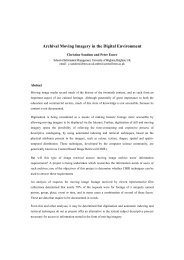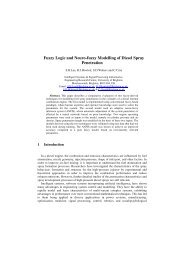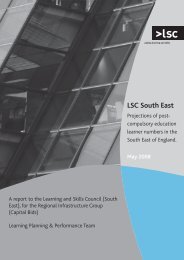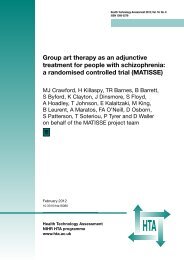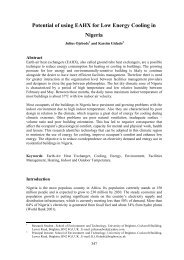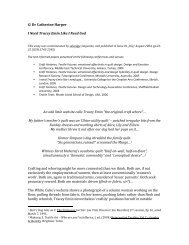TOP TIP - University of Brighton Repository
TOP TIP - University of Brighton Repository
TOP TIP - University of Brighton Repository
You also want an ePaper? Increase the reach of your titles
YUMPU automatically turns print PDFs into web optimized ePapers that Google loves.
The Health Initiatives Team at<br />
Education Leeds, reviews and<br />
evaluates progress regularly through<br />
various channels including team<br />
meetings and supervision. The team<br />
collect a great deal <strong>of</strong> monitoring data<br />
as a matter <strong>of</strong> course (e.g. attendance<br />
at the FACT group and pre-and-post<br />
natal referral, ethnicity, age at<br />
conception, and so on). Moreover,<br />
they also regularly reflect on practice<br />
in more informal ways through critical<br />
discussion to add ‘richness’ to the<br />
reviewing process:<br />
‘We also have an [informal] way <strong>of</strong><br />
doing things that’s not very paperbased...<br />
every fortnight there’s a team<br />
meeting where people report back – so<br />
on a day to day level, it’s monitored like<br />
that… more <strong>of</strong> a dialogue than hard-line<br />
monitoring and evaluation. It’s<br />
qualitative, rather than quantitative<br />
because the numbers are quite small. If<br />
✱ <strong>TOP</strong> <strong>TIP</strong>S<br />
The purpose <strong>of</strong> evaluation will change the type <strong>of</strong><br />
questions that need to be asked. If the purpose <strong>of</strong><br />
evaluation is for accountability, questions might<br />
include:<br />
✱ has the project met its aims and objectives?<br />
✱ how has money been spent?<br />
✱ should the project continue?<br />
you started just looking at statistics, it’s<br />
not very helpful. But if you look at the<br />
quality <strong>of</strong> information, that’s what’s<br />
significant.’<br />
What was clear from the fieldwork for<br />
this research, was that many projects<br />
and services for young fathers do not<br />
differentiate explicitly between<br />
monitoring (continually checking<br />
progress against a plan <strong>of</strong> work by<br />
collecting information) and evaluation<br />
(determining whether aims or<br />
objectives have been met). They may<br />
also not be explicit about the different<br />
purposes <strong>of</strong> evaluation (e.g.<br />
accountability or learning and<br />
development). These are important<br />
distinctions and should be considered<br />
at the earliest stage <strong>of</strong> the work (e.g.<br />
when writing applications for<br />
funding).<br />
If the purpose <strong>of</strong> evaluation is for learning and development, questions might include:<br />
✱ what are the project's strengths and weaknesses?<br />
✱ what are the implementation problems?<br />
✱ which things have worked, or have not?<br />
✱ have you identified the ‘good practice’, and is it transferable?<br />
Adapted from McKie et al., (2002)<br />
PROMISING PRACTICE<br />
KEY<br />
QUESTIONS<br />
• What is the purpose <strong>of</strong><br />
your evaluation?<br />
Accountability or learning<br />
and development?<br />
• How can you ‘prove’ the<br />
impact <strong>of</strong> the project on<br />
young fathers and their<br />
relationships with their<br />
children? What<br />
approaches or methods<br />
might be suitable for this?<br />
• How can young fathers be<br />
meaningfully involved in<br />
the evaluation process?<br />
• How will you make sense<br />
<strong>of</strong> the information you<br />
collect?<br />
• How will you share your<br />
findings and with whom?<br />
(e.g. team members, other<br />
projects, partner agencies<br />
and organisations).<br />
Supporting Young Fathers 51




